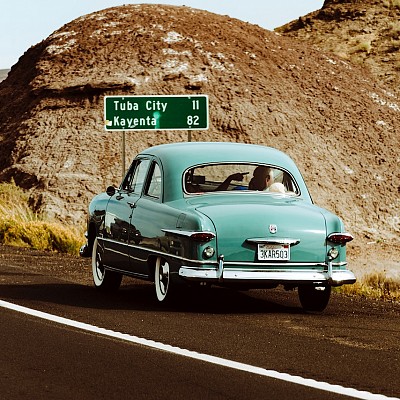Picture yourself cruising down a winding road with endless possibilities stretching before you. A motorcycle trip is about the freedom of the open road and the adventures along the way. Remember, your first motorcycle trip requires careful preparation to ensure safety, comfort, and enjoyment.
Handling the Unexpected Preparing for Accidents
Accidents happen, even to the most prepared riders. Knowing what steps to take in an accident can make a significant difference. The first step is to stay calm and assess your situation. A reputable motorcycle accident lawyer in San Diego suggests documenting the scene. Take photos of your bike, other vehicles, and the surrounding area. This information may be necessary for insurance claims or legal matters. Consider consulting a legal advocate specializing in motorcycle accidents. They can guide you through filing claims and ensure your rights are protected. Establishing this connection before your trip can provide peace of mind.
-
Staying Safe on the Road
Safety should always be your top priority. Motorcycles are less visible than cars, so take extra precautions when changing lanes or merging into traffic. Keep a safe distance from other vehicles to give yourself ample time to react to sudden stops or obstacles. Use your signals and wear brightly colored or reflective gear to increase your visibility to other drivers. Have a communication plan in place. Whether it's a GPS tracker or regular check-ins with a friend, ensuring someone knows your whereabouts is essential for your safety.
1- Understanding Your Motorcycle
Before embarking on your adventure, it's crucial to familiarize yourself thoroughly with your motorcycle. Understanding your bike's mechanics and idiosyncrasies can save you from headaches later. Spend time getting to know how your bike handles under different conditions and how to perform essential maintenance. Address any repairs or replacements well in advance. Remember, even a tiny oversight can become a significant issue when you're miles away from home. Practice makes perfect. If this is your first time riding long distances, take your bike for shorter trips to get comfortable with extended riding. This will help you identify any adjustments needed for a long haul, such as seat comfort or handlebar adjustments.
2- Packing Like a Pro
Efficient packing is an art form when it comes to motorcycle trips. With limited space, every item must earn its place. Start by prioritizing essentials like your helmet, gloves, and protective clothing. Safety gear is not optional, even if you're riding through sunnier locales. Think about the weather and pack layers. Even if you're starting your ride on a sunny morning, temperatures can drop significantly at night or at higher elevations. Waterproof clothing is a must in case you encounter rain along the way. Use saddle, tank, and tail bags to distribute weight evenly. Don't forget a small toolkit for roadside repairs, a first aid kit, and essential documents like your license and insurance.
3- Planning Your Route
While spontaneity adds excitement to any adventure, a general idea of your route will help you prepare better. Use mapping tools to identify key stops, fuel stations, and accommodations. Knowing where you'll rest can help you avoid fatigue—a major cause of accidents. Familiarize yourself with the road conditions and traffic rules in your visiting areas. Some routes have variable speed limits or unique road signs. Being aware of such details ensures you're always riding safely and legally. Have a Plan B. While the open road invites exploration, detours due to road construction or weather conditions are expected. Flexibility in your route means you can adjust as necessary and keep your trip stress-free.
4- Ensuring Rider Comfort
Long hours on the road can wear on your body. Invest in quality riding gear that fits well and offers protection without sacrificing comfort. A riding jacket with armor, padded gloves, and quality boots are essential. Dehydration and fatigue can sneak up during a long ride, affecting concentration and reaction time. Use breaks to refuel both your bike and yourself. Adjust your bike's ergonomics if needed. Handlebar risers, custom seats, or footpeg adjustments can significantly improve your comfort, allowing you to enjoy the ride rather than endure it.
5- Exploring Local Regulations
Every state or country has its own rules regarding motorcycle travel. Research these regulations ahead of time to avoid fines or complications. These may include helmet laws, lane-splitting permissions, or toll requirements. Signage and road rules can vary significantly, especially if you're traveling internationally. Brush up on any language nuances or specific signs you may encounter to ensure you're always riding legally. Understand the insurance requirements for where you're traveling. Some places might require additional coverage or specific policies for motorcycles, and it's better to be prepared than caught off-guard.
6- Connecting with the Motorcycle Community
One of the joys of motorcycle travel is the sense of community it offers. Contact local motorcycle clubs or online forums to connect with fellow riders. They can provide invaluable advice on routes, accommodations, and must-see spots. Consider joining group rides or events along your path. This provides a safety net and enriches your experience with shared stories and camaraderie. Share your experiences and learn from others. The motorcycle community is diverse and welcoming, and being part of it can enhance your trip in unexpected ways.
7- Budgeting for Your Trip
Costs can add up quickly on the road, so setting a budget beforehand helps ensure you're financially prepared—factor in fuel, accommodations, meals, and any activities you plan. Look for cost-saving opportunities, like camping instead of hotels or preparing meals rather than dining out. These not only save money but can also add to the adventure. Keep an emergency fund for unexpected expenses. Whether it's a flat tire or an impromptu sightseeing tour, having a financial cushion will keep your trip stress-free.
8- Capturing Your Journey
Your first motorcycle trip is an experience you'll want to remember. Consider bringing a small camera or using your phone to capture your adventure's sights, sounds, and stories.
Keep a travel journal. Jot down notes about interesting places, people you meet, and your thoughts. These memories fade fast, and documenting them keeps the experience alive long after you return home. Consider sharing your trip on social media or a personal blog. Not only can this inspire others to undertake similar journeys, but it also allows friends and family to follow along and share in your adventure.
Your first motorcycle trip is a rite of passage filled with excitement, discovery, and personal growth. With thorough preparation and a spirit of adventure, it can be an enriching experience that ignites a lifelong passion for the open road. Enjoy the ride, savor the moments, and remember—every mile is a new memory waiting to be made. Safe travels!






































